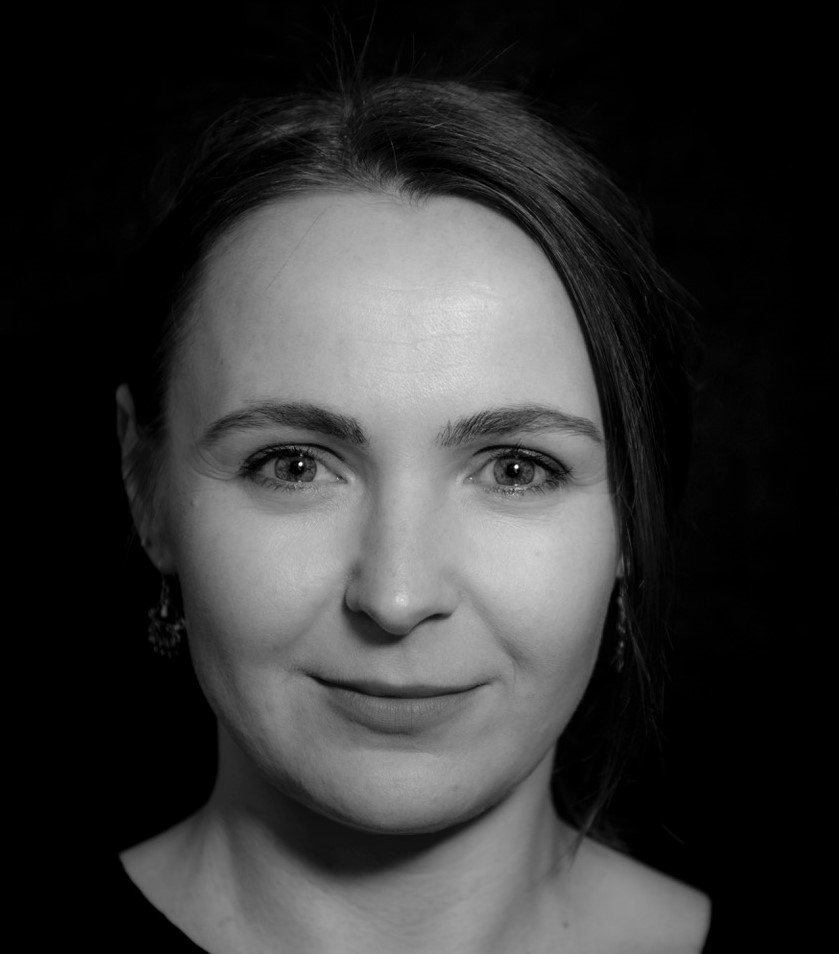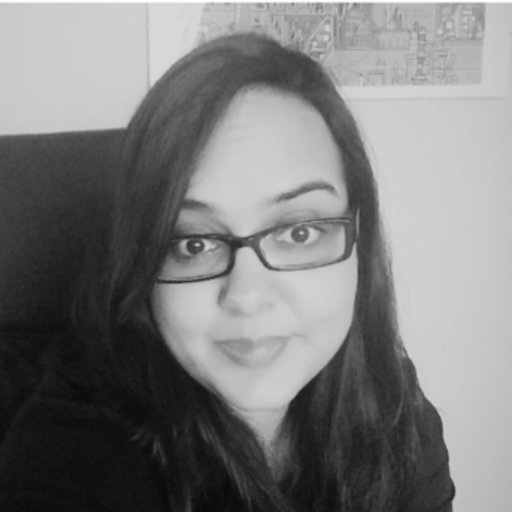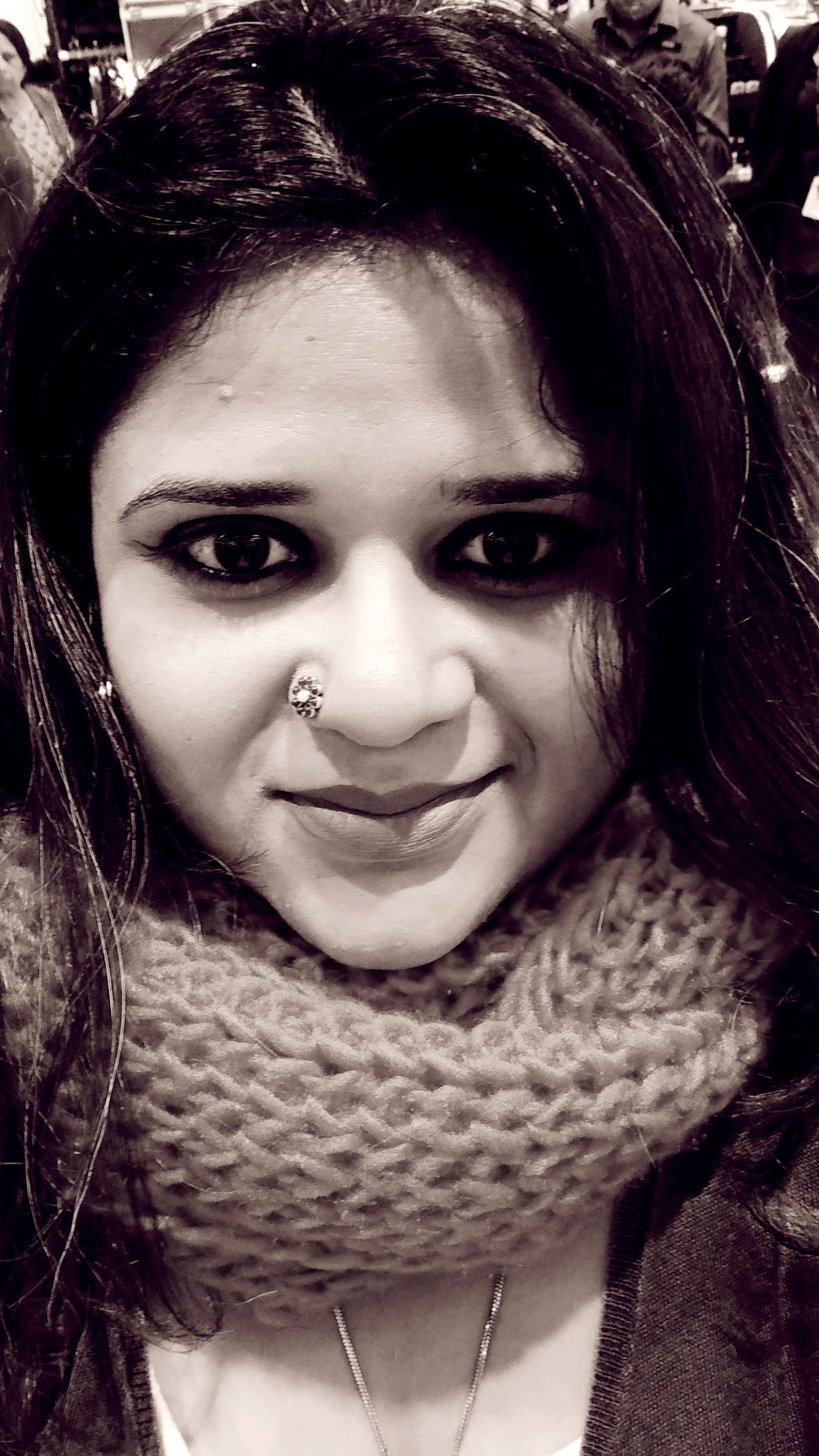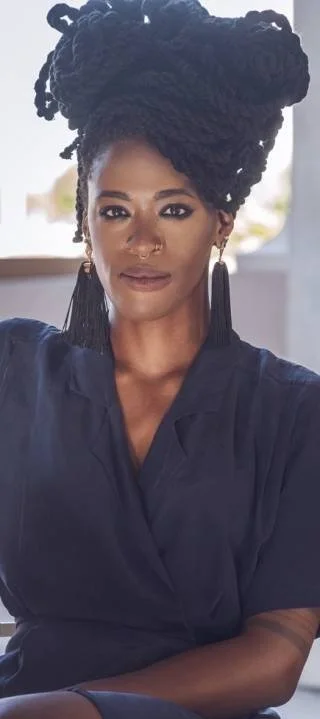
Team GenViR
Meet our Team
-

Dr. Nadia Svirydzenka
Principal Investigator
Dr. Nadia Svirydzenka is an Associate Professor and Reader in Culture, Identity, and Mental Health at De Montfort University and Deputy Director of Mary Seacole Research Centre. Dr Svirydzenka is a social and cultural psychologist, and her research interests lie in understanding mental health of vulnerable populations though culturally framed identities, attitudes, stigma, and behaviours. She is passionate about transdisciplinary research and in her projects, she blends the use of creative methodology with traditional mixed methods to elicit new stories and lived experiences and catalyse fresh thinking about possible solutions. She is part of a number UKRI funded projects, including CHAMPIONS, an ESRC Rapid response study exploring the impact of temporary accommodation and homelessness on health and development of young children in the UK. She is also currently leading this AHRC funded Network project between UK and India on Gender Based Violence and Resilience in internal migrant women, and the hijra communities.
-

Dr. Anoop Bhogal-Nair
Co-Investigator
Dr. Anoop Bhogal-Nair is a Senior lecturer in Marketing and Consumption, Faculty of Business and Law. Anoop’s research investigates how individuals negotiate and consume both their sense of physical being and their self-identity within the spaces they occupy. To date her work has examined the experiences of Indian women, religious minorities, and marginalised and disenfranchised groups, focusing on the challenges, threats, and opportunities individuals experience in their lives. Through transdisciplinary enquiry, much of her research work aims to promote positive social impact through an active engagement with key stakeholders and the broad wellbeing agenda. She has been engaged in several funded projects with the British Academy, AHRC and Innovate UK, examining (i)empowerment, resilience, and skills provision for young rural women in New Delhi (EmSkil); (ii) the preservation of oral histories and narratives of transnational Indian film heritage among the Indian diaspora in the UK; and (iii) the lived experiences of gender-based violence among slum dwelling migrant communities in India. As an advocate of co-creation and empowerment-based methodologies (storytelling, poetry, photo elicitation), Anoop engages in the use of novel and unconventional methods to act as vehicles for voice.
-

Prof. Raghu Raghavan
Co-Investigator
Prof. Raghu Raghavan holds a chair in mental health at De Montfort University, Leicester, UK. He is the Director of Mary Seacole Research Centre – an interdisciplinary research institute focussing on mental health,migration, ethnicity and culture and is also the Director of the Lifelong Wellbeing research theme. He is also co-director of the Leicester Centre for Mental Health Research (LCMHR) a collaborative research centre with De Montfort University, Leicestershire Partnership NHS Trust and the University of Leicester, UK. He has extensive experience of interdisciplinary research methodology using creative arts-based approaches for co-creating knowledge of lived expertise and cultural mental health perspectives from urban and rural communities. He holds a number of UK Research and Innovation and National institute of Health Research UK research grants and has published widely with over 140 publications on the theme of mental health and disability of diverse cultural communities in India and the UK. He presented his work of resilience and forced displacement to the Overseas Development Committee at the UK Houses of Parliament. He is a Trustee of MeHeLP India Foundation, NGO working in urban and rural India promoting culturally appropriate mental health literacy.
-

Prof. Brian Brown
Co-Investigator
Dr. Brown Brown is a Professor of Health Communication at the Mary Seacole Research Centre at De Montfort University. He has been working these last few years on the role of the arts and humanities in fostering resilience, recovery and mental health in both the UK and India. He has also been working on developing novel theoretical perspectives and methodological approaches in the study of health, and have brought ideas from Pierre Bourdieu’s sociology to bear on the issue, as well as thinking about health in terms of competing knowledge systems. This means that he is very interested in how the ‘untold stories’ of gender based violence can be brought to a wider audience to inform practitioners, campaigners researchers and policymakers.
Since some of his earliest academic work focusing on gender and sexuality in the early 1990s, he has attempted to incorporate material on gender-based violence into my teaching on mental health, social stratification and informal care. He has been trying for some time to bring together my interest in the health humanities with my interest in gender inequality and he is very proud to be part of this project which he hopes will be a stepping stone to further work in this area.
Quote from Brown, “When I was a child back in the 1970s I remember a friend of my mother’s being involved in one of the first domestic violence refuges in our area. Ever since then I’ve tried to include awareness of these issues in my teaching and to encourage the human service professionals of tomorrow to consider this in their practice. The GenViR project is an exciting opportunity to tackle this in an international context.”
-

Dr. Antonia Liguori
Co-Investigator
Dr Antonia Liguori is a Senior Lecturer in Applied Storytelling and MA Storytelling Programme Director at Loughborough University, in UK. Over the past 20 years, she’s had the privilege to experience a very diverse and exciting career pathway, in the cultural sector and the media industry in Italy, and in academia in the UK. She has been drawn to the space where Education and Technology intersect, and opportunities for methodological innovation arise. Having been immersed in a truly interdisciplinary environment provided her with a broad range of skills and knowledge that have allowed her to develop a growing international reputation and a record of excellence in research, teaching and enterprise within the field of digital storytelling, applied within experimental pedagogy and educational psychology. Her research has been focusing on three main strands: digital storytelling in formal and non-formal education; co-creation, participation and resilience to address environmental issues; applied storytelling and mental health literacy. Since 2015, after having joined HEART – Healing Education Animation Research Therapy, she has been exploring digital storytelling as a therapeutic intervention and, more recently, its application within social prescribing. In the past 5 years, she has been involved (as Principal Investigator or Co-Investigator) in more than 20 projects of various sizes, ranging from a few thousand euros to over a million euros in value, funded by AHRC, NERC, ESRC, MRC and the European Commission.
Dr. Antonia Liguori has been exploring the use of Digital Storytelling as a participatory approach for action research with the aim to unlock grassroots knowledge, dismantle knowledge hierarchies and make those often-unheard voices emerge within the public debate. She is particularly keen to apply co-design approaches to co-create safe spaces for everyone to listen and be listened, empathise and feel valued.
Quote from Antonia Liguori, “Sometimes we believe that silence has no meaning, but we are wrong: if we learn to listen to silent voices, we can make a big step forward”.
-

Dr. Selina Busby
Co-Investigator
Dr Selina Busby is an academic and theatre practitioner who makes performances with community groups and a National Teaching Fellow. She is professor of applied and social theatre at The Royal Central School of Speech and Drama where she is also the Course Leader for the MA Applied Theatre and the lead for Research Ethics and Integrity. Her research and practice focus on theatre that invites the possibility of change. She uses participatory and emancipatory research methods, and has worked in prison settings, youth theatres, and with people living in adverse conditions both in the UK and internationally. Her research investigates applied theatre with marginalised communities undertaking in partnerships with theatres, ngos, youth groups and grass roots practitioners. Current projects include work with communities living in informal housing settlements and those living with gender-based violence in India and a cultural heritage project in Kenya archiving African Rock Art in order to create a digital learning resource and drama package for schools in partnership with local practitioners and UK based C&T. Recent publications include Applied Theatre: A Pedagogy of Utopia (2021) Methuen and The Routledge Companion To Theatre and Young People. Co-edited with Kelly Freebody and Charlene Rajendran. (2022), Routledge.
Busby's research has explored the impact of applied and community drama on shelter-dwelling youth, prison inmates and women with experience of incarceration. Her 18 year collaboration with StageLeft in Mumbai has included participatory research projects with disadvantaged youth in Mumbai and in Delhi. Since 2006 they have worked with over 5000 young people, teachers and women exploring how drama education raises educational outcomes and aspirational thinking.
Quote from Selina Busby, “This multidisciplined international project brings together social scientists and arts researchers in a unique way to explore how digital storytelling and theatre might build resilience in real world circumstances where this is needed most and where its impact is both tangible and potentially vital to the projects community partners.”
-

Dr. Harjinder Kaur- Aujla
Co-Investigator
Dr. Harjinder Kaur- Aujla - Harj is a UK based lecturer in mental health nursing and Babcp accredited CBT therapist/ trauma specialist. She is active in the trade union movement in UK and is branch president at University of Birmingham UCU and West Midlands regional black officer. She is currently doctoral researcher in exploring the mental health of Sikhs Domestic Violence survivors, and also Co-Chair of the EDI group of the British Association of Behavioural and Counselling Psychotherapies. Her research interests and unique political lens shows a zest for equality and her clinical expertise is invaluable to GenVir considering trauma and faith/ cultural aspects of GBV in India. She has contributed to various media discussions on abuse, mental health and loss. Her papers have been presented at international level including other conference presentations of her works.
Finally, she is a committed committee member of the newly formed national network Sikhs in Academia https://sikhsinacademia.org so widely connected to frontiers in the industry.
-

Dr. Rashi Bhargava
Network Coordinator
Dr. Rashi Bhargava is an Assistant Professor in Sociology at the Department of Sociology and Social Work, Christ University, Bengaluru, India. She completed her doctorate from the Centre for the Study of Social Systems, School of Social Sciences, Jawaharlal Nehru University. Her research interests include politics and culture in North-East India, sociology of gender and urban spaces, visual culture, disciplinary practices of sociology and social anthropology in South Asia and stand-up comedy.
Given her 15 plus years of experience in working with communities and a decade long experience in teaching at different higher education institutions in India, Rashi Bhargava has contributed significantly to the field of research, teaching and knowledge production in India. She has widespread experience in collaborative and co-constructive works.
Bhargava has contributed to research and knowledge in areas of health and fertility amongst women in urban and rural areas in India (funded by DFID and conducted by University of Edinburgh and CORD, India), child marriage (funded by UN and conducted by ICRW, India), impact of conditional cash incentives on girls’ education (funded by USAID and conducted by ICRW, India). All of these research projects were conducted using a phenomenological framework and qualitative methodologies to capture the life world and perceptions of the subjects of the research and how these learnings can be used to influence policy decisions and contribute to the overall development of the communities in the project.
Quote from Rashi Bhargava, “Storytelling and its subversive potential has a long history in India. Numerous folk and indigenous art forms across the country have engaged with matters of social relevance by drawing people in both as performers and as audience urging them to see and be seen, and to discuss, deliberate and act collectively. Built on similar ethos, GenViR UK-India Network project promises a space that prioritises equal participation, co-creation of knowledge, and agency and subjectivity of all parties involved"
-

Ngozi Oparah
Expert Collaborator
Ngozi "N/A" Oparah is a writer, researcher, and artist. Her writing has been featured in numerous literary magazines, including Foglifter, where she currently serves as a prose editor. Ngozi has also earned residencies in writing, art, and narrative media from Can Serrat in El Bruc, Spain; Proyecto Lingüistico Quetzalteco in Xela, Guatemala; and HANGAR in Lisbon, Portugal.
Ngozi holds a Master of Fine Arts in Creative Writing from California College of the Arts and a Bachelor of Science in Neuroscience and Philosophy from Duke University. Ngozi has participated in various neuroscientific and psychological research projects, focusing on Post-Traumatic Stress Disorder, memory (Alzheimer's and Mild Cognitive Impairment), and proprioception. Her most recent research explores the use of participatory and transdisciplinary storytelling processes and co-design as tools for community education and advocacy.
Ngozi has just completed her PhD at Loughborough University in Creative Arts and Design in the UK, where she investigated the roles of phenomenological, multidisciplinary narratives in addressing mental health literacy. Her novella, "Thick Skin," was published by KERNPUNKT Press in April 2021, and an experimental novella, "The Downsides," is forthcoming from Futurepoem in 2025.
For the last eight years, Ngozi served as the Director of Community Programs at StoryCenter, a digital storytelling non-profit located in Berkeley, CA, where she instructed in digital and visual storytelling, autofiction, poetry, and memoir writing. She also teaches creative writing and storytelling strategies at Higher Education Institutions and non-profit organizations around the world and works as a freelance copywriter, narrative designer, and editor.
Ngozi currently resides in London and serves as a lecturer on the Masters in Arts and Sciences in Creative Health Degree at University College London.
-

Dr. Ankit Dwivedi
Expert Collaborator
Ankit Dwivedi is interested in our civilisational heritage of remembering and telling stories. Ankit has over a decade of experience in facilitating groups using pedagogies and philosophies of Drama, Arts Based Therapy, Storytelling and play. In his Doctoral work, Ankit explored Storytelling in the context of Indian public schools and Teachers Professional Development. He currently works with Tata Institute of Social Sciences as a Consultant and Guest Faculty.
